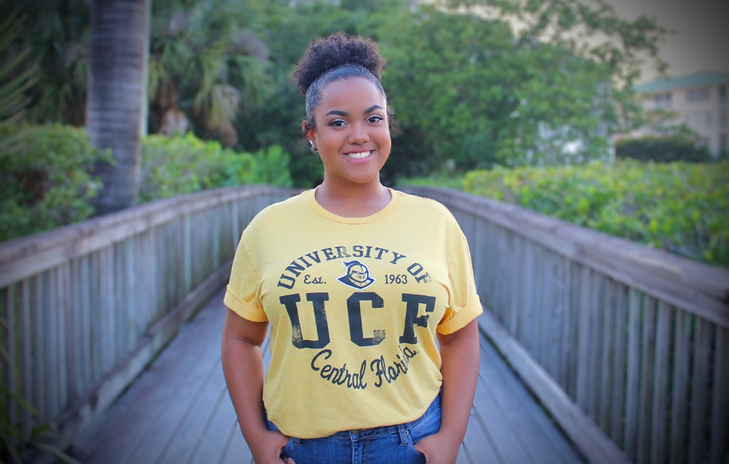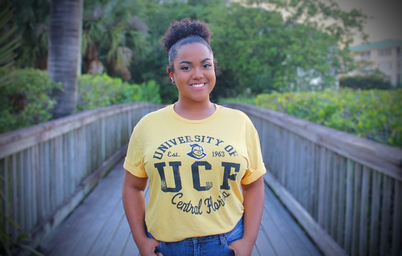Meet my cousin Erika Lane: a junior at the University of Central Florida, majoring in psychology on the clinical track. To apply what she’s learned, Erika participates in an internship as a guardian advocate volunteer. In short, a guardian advocate is a person who works with clients from mental health facilities who were admitted under the Baker Act. If there are no family members to step in, a guardian advocate will communicate with clients and make sure that they receive the proper treatment. As a UCF Knight, Erika is fulfilling her role and making an impact along the way.
Her Campus (HC): How did you know that you wanted to be a psychology major on the clinical track?
Erika Lane (EL): It’s actually a funny story about how I realized I wanted to study psychology. I was a freshman in high school. Every student had to take one year of health and physical education class. Within the course, they asked me what I wanted to study in college. I remember my dad listing off majors, and I randomly picked psychology to get the assignment over with, not knowing what I wanted to major in. After that, whenever someone asked what I was going to college for, I always said psychology. Then, I found things in my everyday life that connected me with the major. After going through my parents’ divorce, I realized I specifically wanted to focus on marriage and family counseling.
HC: What has been the most interesting part of studying psychology?
EL: The most interesting part about studying psychology has definitely been learning about all the different perspectives and theories about mental illnesses. There’s so much that goes into psychology. It’s really just fascinating as a whole.
HC: How has your college coursework prepared you for your internship?
EL: It has taught me different ways to approach different people. Some courses I’ve taken have taught me all about interviewing and counseling, which have guided me smoothly through the process of talking to a patient.
HC: What does a typical day as a guardian advocate look like?
EL: A typical day would be to call doctors or treatment teams, make plans for a patient’s discharge and discuss what medication or treatments will work best to get them as healthy and safe as possible. With the right plan, they can get back into their everyday life. About three times a week, a guardian advocate will visit or call their client for about 30 minutes to an hour. The advocate will talk to them about their goals and how we can work our way up to discharge, while also forming a genuine connection of trust.
HC: How has COVID-19 affected your internship?
EL: Usually, a guardian advocate will meet face-to-face with a client and gain a more personal connection. Now, we are restricted to court meetings held online and shorter phone calls with clients. There are no meetings in person.
HC: What is the most rewarding part of your internship?
EL: The most rewarding part is seeing the patients’ faces start to light up knowing they get to talk to someone other than a therapist or doctor. They get used to the calls and visits, so they are happy when the time comes.
HC: How has being a guardian advocate prepared you for post-graduate life?
EL: Being a guardian advocate puts me in the same environment of talking to somebody one on one, just like a therapist would. I think that this internship opportunity has given me a small glimpse of what my job position will be when I graduate. As of right now, nothing has changed my future career plans.
HC: What has been the most challenging part of your internship, and how did you overcome it?
EL: I think the most challenging part is understanding that you have to get comfortable in silence. On some days, some patients will not want to speak, elaborate on topics or will just get stuck in a moment. I thought I always had to have something to say or have a next question to ask, but I quickly understood that silence is something you must get used to. I overcame this fear by giving breaks during conversations with patients to allow them to gather their thoughts and relax.
HC: What advice do you have for anyone who is starting an internship?
EL: Don’t be afraid to ask questions or to fail. You’ll never know unless you ask. Once you understand that mistakes will be made, you won’t be as hard on yourself when it happens.
Want to see more HCFSU? Be sure to like us on Facebook and follow us on Instagram, Twitter, TikTok, YouTube and Pinterest!



